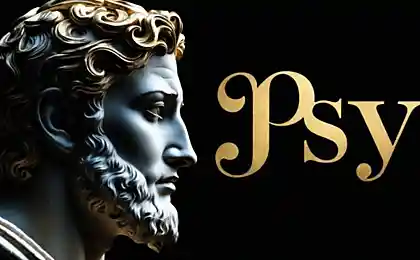320
A guide to psychology. Issue 14. Ethics and Morality: How We Determine Good and Evil
Description: This article explores the role of ethics and morality in our lives. The author considers where the ideas of good and evil come from, how they change over time and what impact they have on the individual and society.
List of all articles in the cycle

Introduction
What is it? goodness and wickedness? To this seemingly simple question different cultures, eras and people give a variety of answers.
Our moral values are one of the most complex and significant components of human nature. Where do they come from?
Why do some societies condemn certain actions and others do not?
In this issue, we will turn to ethics and morality to understand how we form our ideas about moral norms.
and how they affect our behavior and perception of the world.
Understanding the ethical dimension allows us to be more aware of our own actions.
They also build more harmonious relationships with others. But because the lines between "good" and "bad" are sometimes blurred,
We often face dilemmas where there is no clear answer. And yet, while exploring the nature of moral imperatives,
We can learn to make decisions based not only on personal gain, but also on the common good.
Main part
Where does morality come from: cultural roots and evolutionary backgrounds
Moral norms are often perceived as something “natural” and “common to all”, but historical and anthropological analysis shows that moral norms are “common to all”.
what ethical concepts They differ significantly depending on culture and time.
In some societies, it was considered “good” to fight for the honor of the family, in others to follow the principles of non-violence.
This diversity of moral codes is explained by several factors:
- Cultural environment. Each community has its own traditions, customs and taboos.
Consolidating ideas of right and wrong. - Religious influences. Many moral norms are established through religion.
It determines what is acceptable to society and what is condemned. - Evolutionary prerequisites. Some psychologists (e.g., evolutionary psychologists) believe that
The desire for cooperation and mutual help is embedded in our biology and has served as the basis for ethics.
This confirms the hypothesis that some moral foundations have deep socio-biological roots.
Allow the group to survive and develop together.

Ethics as a scientific discipline: a brief overview
Ethics as a separate field of philosophy seeks to answer the question: “How should one live and act?” ?
Since ancient times, thinkers have speculated on the nature of good and evil, justice, and virtue.
Here are some key areas of ethics:
- Virtuous ethics. Ancient philosophers such as Aristotle taught that the purpose of man is to perfect character.
(to cultivate virtues). A good deed, according to this approach, stems from inner nobility. - Deontological ethics. Immanuel Kant argued that there are absolute moral principles.
("categorical imperative"), derogation from which is unacceptable. The most important thing is to follow the debt, not to seek profit. - Utilitarianism. By contrast, for Jeremy Bentham and John Stuart Mill, "good" is what brings
Maximum happiness for the greatest number of people. The norm is judged by the consequences, not by the “internal correctness” of the act.
Trying to understand why a person chooses a particular moral course and how beliefs about “good” and “evil” are formed.
How We Measure Good and Evil: Roles, Intentions, Consequences
When we say “He’s a good man” or “He did a bad thing,” we usually think of three things:
- Intentions.. If someone is doing something for good reasons, we tend to see it as “good.”
Even if the outcome is not perfect, intentions play an important role in moral judgment. - Consequences. Here the utilitarian criterion is important: does the action bring benefit or suffering?
Sometimes even good intentions can lead to tragic consequences, which complicates moral judgment. - Social roles and context. Moral assessment depends on who acts and under what conditions.
For example, a lifesaver is a hero, although “risking” may be considered reckless.
It is often said that “the end justifies the means” – but this is only one of many. ethics.
which is often criticized.

Moral dilemmas in everyday life
Although ethics is often associated with major philosophical treatises or global issues, it is not.
actually moral dilemma They occur daily:
- Leave a truthful but harsh comment to a colleague or try to save face for the sake of peaceful relations?
- Pity someone you know who can’t pay your debts, or stick to the principle of “debt is red”?
- Tell the truth to a loved one who might hurt them, or withhold some information to avoid pain?
And even your current emotional state. Hence the ambiguity of moral judgments:
The same action may seem absolutely good to someone, and categorically wrong to another.
Why it is important to understand your own value system
No matter how much we adhere to the norms of society, each of us has a personal value system.
It is the “internal compass” that guides us in choosing between different behaviors.
Conscious attitude to your own ethics helps:
- Strengthen personal identity. When you clearly understand what you believe in, it is easier to be yourself in difficult situations.
- Make informed decisions. By understanding your own criteria of good and evil, you will avoid vacillating between other people’s opinions.
- Building relationships on trust. People value those whose values and principles they can predict.
Consistent morality increases the level of mutual understanding. - Stay flexible. It sounds contradictory, but a deep understanding of your beliefs makes it possible.
Recognize that others may have other reasons. You can have a dialogue without feeling threatened by your identity.
Conclusion
Ethics and morality are the framework of the human community, designed to regulate relationships.
To develop the principles of peaceful coexistence and mutual assistance.
At the same time, the specific content of ideas about good and evil historically and culturally variablely
Reflect the needs and priorities of a particular time and place.
It is important for an individual to understand his or her own value system:
See which beliefs are inherited from tradition or religion and which are shaped by personal experience and reflection.
A clear understanding of your principles facilitates decision-making, helps build relationships on a solid foundation of trust.
It allows us to engage constructively even with people whose views may be very different from ours.
Ultimately, the definition of good and evil is a continuous process in which people participate.
Our personal reflection, our social norms, and the philosophical heritage of generations.
This process always requires mental flexibility, empathy for others, and readiness for spiritual growth.
After all, the more deeply we understand the nature of moral values, the more confidently we build the road to a more peaceful world. humane peace.
Glossary
Ethics
A philosophical discipline that studies morality, moral norms and values, as well as the criteria for “right” behavior.
Moral.
A system of norms and rules adopted in a society or group that regulates relations between people in the category of good / evil.
Virtuous ethics
Direction in ethics, where the main role is played by the personal virtues of a person (courage, justice, wisdom, etc.).
Deontological ethics
An approach that considers moral principles to be absolute (regardless of consequences) and requires obedience to duty.
Utilitarianism
Ethical theory, according to which “good” is considered what brings the maximum benefit / happiness to the greatest number of people.
A moral dilemma
A situation in which none of the available elections can be described as "unambiguously good," causing internal conflict.
A guide to psychology. Issue 13. Thinking Mistakes: How to Avoid the Traps of Your Mind
A guide to psychology. Issue 15. Creativity and Play: Where does creativity come from and why is it needed?























